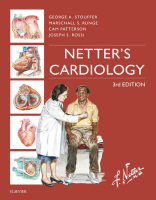Physical Address
304 North Cardinal St.
Dorchester Center, MA 02124

Aging is a normal physiological process associated with a decline in organ system function. Changes of cardiovascular physiology intertwine with pathophysiology of cardiovascular disease (CVD). Although disease should not be misconstrued as an inevitable consequence of aging, distinctions are often…

The US population continues to become more diverse, and because of this diversity there are challenges in providing good cardiovascular care. The emerging diversity necessitates a broader understanding of cardiovascular disease (CVD) in special and underserved populations. These populations include…

Normal Sleep Physiology The state of sleep is determined by an array of coordinated neuronal processes. Sleep is typically divided into stages based on electroencephalographic (EEG) features, eye movements (electrooculography), and muscle tone (electromyography). Stages N1 through N3 are collectively…

HIV and AIDS affect >36 million people worldwide. Increased survival among HIV-infected persons who have access to effective combination antiretroviral therapy (ART) and rising rates of new diagnoses among older adults have resulted in growing numbers of older people living…

Etiology and Pathogenesis Pulmonary hypertension (PH) is elevated pressure in the pulmonary arteries, which is hemodynamically defined as a mean pulmonary artery pressure (MPAP) of ≥25 mm Hg. It may occur in response to many different mechanisms. Regardless of how PH…

Cardiac Tumors Before the second half of the twentieth century, cardiac tumors were diagnosed almost exclusively at autopsy, and no treatment options existed for those rare instances of antemortem discovery. Despite advances in cardiac imaging that improve detection, cardiac tumors…

Etiology and Pathogenesis Autoimmune rheumatic diseases include a wide variety of illnesses, such as rheumatoid arthritis (RA) and systemic lupus erythematosus (SLE), in which changes to both the innate and adaptive immune system lead to tissue damage. The etiologies of…

Endocrine system diseases generally affect multiple organ systems, because hormones secreted into the general circulation act on multiple tissues that are distant from their sources of synthesis and secretion. Nearly all hormones and accompanying hormonal disorders may be associated with…

Neuromuscular disorders are a subset of neurology that affects the peripheral nervous system, including lower motor neuron projections from the spinal cord, spinal nerve root, peripheral nerve, neuromuscular junction, and muscle. A number of neuromuscular diseases have effects on the…

Cardiovascular conditions are among the most common causes of maternal mortality in the United States. As more women delay childbearing into their thirties and forties, the interaction among coronary disease, its risk factors, and pregnancy is becoming increasingly important in…